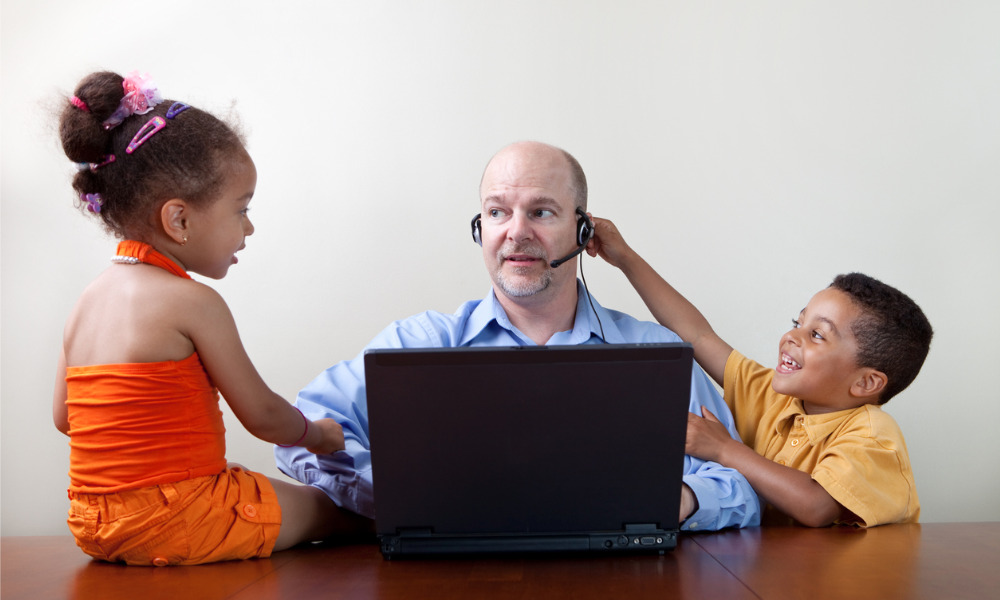
The weeks ahead may entail changing your style of working

If you’re a parent working from home because of the coronavirus pandemic, you’ll know how difficult it is setting boundaries between work and home life, one HR tech expert has observed.
“With social distancing helping to slow the spread of coronavirus, many families are suddenly finding that – not only are they working from home – but their kids are at home, too,” shared Sara Sutton, CEO and founder of FlexJobs, a career site offering remote work opportunities.
“Whether you’ve worked from home for years or if you’re completely new to remote work, these circumstances are incredibly challenging.”
READ MORE: COVID-19: How the world is caring for frontline workers
Juggling responsibilities
Sutton launched the platform when she was pregnant with her first child and growing frustrated with how job boards offered very few options for flexible work.
Now, amid the call for social distancing, the company is “disrupting the traditional workforce” and leading the way for remote jobs to take centre stage.
But the CEO herself is aware of the challenges this ‘new way of working’ might pose to parents who aren’t used to telecommuting.
“Of all the distractions that may affect emergency remote working,” she said, “children are likely going to be the most persistent and insistent.”
“As a working mom myself, whose kids will be home for a period of time, too, I know we are all doing the best we can right now to juggle all of our important responsibilities,” she added.
READ MORE: Online meeting blunders
Sutton has shared a few tips to help work-from-home parents survive the weeks ahead:
1. Be open with your boss. “First of all, proactively communicate with your employer that your children are at home,” said Sutton. “So, unfortunately, you cannot guarantee your work or work calls will be interruption-free.”
2. Ask the help of ‘virtual’ babysitters. Get friends, aunts/uncles, grandparents, godparents, babysitters and nannies online to “talk, read, play games, sing [and] do dances” for the kids during your most crucial work hours. “These people are amazing resources because you can use them to arrange virtual playdates for your kids,” Sutton added.
3. Plan activities that don’t require full supervision. Different age groups require different types of fun activities. While babies are often content sitting on a bouncy chair and listening to children’s songs on loop, toddlers and older kids might prefer more interactive and educational games online or on mobile apps.
4. Set boundaries and reward good behaviour. Talk to your kids and help them understand how, when and why you are working. Get them to cooperate and reward them for helping you tackle work throughout the day.
5. Take mini-breaks. Sutton also recommends changing your style of working. “Instead of tackling a project for three hours, you will need to break up the day more to give your children the attention they need,” she said.
Kids have a shorter attention span. Work-from-home parents might want to schedule their tasks in shorter segments, like in a split shift, to be able to attend to their kids’ needs. “Expect that you may need to continue working after they’ve gone to bed, or wake up earlier in the morning to get more uninterrupted hours in,” Sutton said.